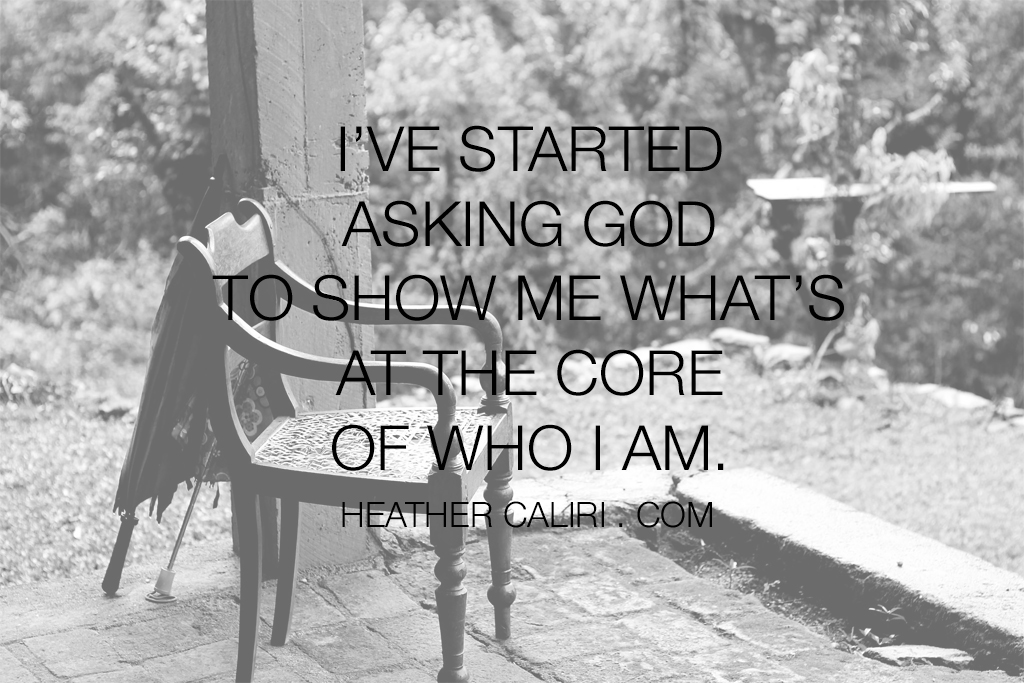Back when I was doing quiet times for a half-hour every day in college, I would put off starting as long as possible. Sometimes, that meant I procrastinated until the next day, and when I’d open my notebook, the shame of my indifference towards God and His Word sickened my stomach.
Not that long ago, I read those notebooks, and realized I spent almost all my time in them apologizing.
Sorry I was late for starting. Sorry my heart wasn’t really in the study. Forgive me for being like the unfaithful harlot in Hosea. Forgive me for being like the disciples of little faith. Sorry, Lord, for my lack of enthusiasm. Sorry for my lukewarm heart. Sorry. Sorrysorrysorry.
I hated those quiet times. I did not realize how much I hated them until I had stopped doing them, and the very idea of starting again made me want to weep.
What killed me afterwards, was how honest I had tried to be, with God and myself. I didn’t shy away from how much I disliked what I was doing. I told God I was struggling, that I did not know how to change my heart.
I have never struggled much with honesty with God.
What I have struggled with is authenticity.
Once, my parents had a garage sale, and tried to sell some chairs that had been my great-grandparents. The chairs were solid maple, needing some restoration, but would be valuable afterwards, but no one bought them. However, after we closed up shop. my mom discovered someone pared off a slice of the legs to see if they were indeed solid through-and-through.
Authenticity costs something to discover. It is not apparent from the outside. Authenticity means that your actions, your heart, and your brain are of one piece.
The problem with my quiet times was not that quiet times are worthless, or that I was unmotivated. The problem was that I hated them.
How could I possibly grow closer to God practicing a discipline of hatred? How could I soften my heart when I had to brace myself to open God’s Word?
What tripped me up about authenticity forever was that I assumed that I knew what authentic would look like. A good Christian would like quiet times. A good Christian would go to church and serve in ministries. A good Christian would pray easily, make friends in small group, and grow spiritually in a steady upward trend.
I thought if I did good things, my heart and head would catch up.
But you don’t start out with a veneer and wish it solid.
Authenticity with God meant I needed to stop apologizing for the way I really felt, the disciplines I wanted to do—or didn’t. I needed to stop trying to fix myself or yearn after an outwards appearance that was not my own.
Don’t get me wrong: there’s still plenty of room for repentance in my life. But I’ve stopped apologizing when I come before the King of Heaven. Instead, I’ve started asking him to show me what’s at the core of who I am. Started quitting disciplines that make me anxious, started staying home when church felt like it had serrated edges. Stopped volunteering so I’d feel safe and unimpeachable. Stopped assuming my faith would turn out with a high-gloss finish.
Started focusing on joy instead of results. Started practicing stillness and emptiness. Added things only when I could do them with rejoicing.
I am still a chair badly in need of a renovation. But dusty and broken as I am, my beauty comes from being true to the very center of my heart.
For the rest of the posts in this easy-yoke faith series, click here.
Image credit: Manu Praba, with my modifications















 When You Don’t Have a Peaceful Heart
When You Don’t Have a Peaceful Heart
So true, Heather. I spent so long to force my head and heart to embrace what I thought authenticity was supposed to look like…it didn’t work. But discovering who I am and being true to what’s at my core is making space for joy and beauty and much needed renovation.Thank you!
You’re welcome, Johanna. What a joy it is to be able to dialogue about this together. Thank you 🙂